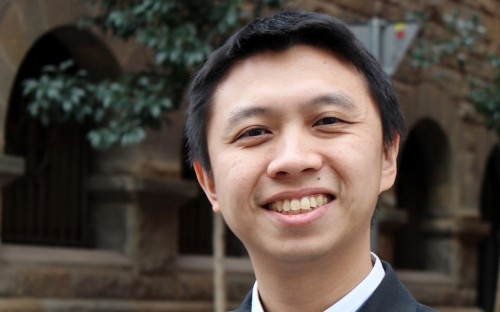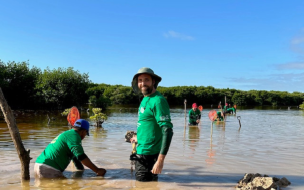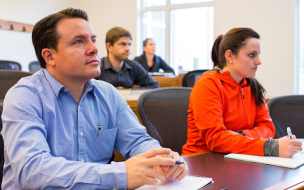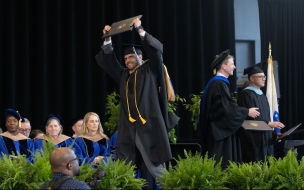Ever since he was young, Kian Peng Ng has been eager to learn as much as he possibly can about the world around him. His curiosity led him to pursue a degree in physics, before gaining practical knowledge working for the National Environment Agency.
To complement that experience with business acumen, he pursued an MBA program at Spain’s ESADE Business School, where he found a collaborative environment that greatly enhanced his learning experience.
Kian spoke to BusinessBecause about his experience at ESADE and why he thinks that his MBA degree – and his experience during an internship at Deutsche Bank, Germany’s largest lender – will help him transition from the public sector to the private sector.
Why did you choose to earn an MBA after studying physics?
It is a form of evolution. When I was younger, I was curious about the world at large, so physics helped me make sense of the entire universe. Now, I can safely say that that goal is accomplished, so I am moving on to the next phase.
Business for me is about creating valuable products and services for society – and that is important because I would like to make a positive contribution to mankind.
Coming from a science background, how challenging was the MBA?
My science background definitely helped in certain aspects, actually, in terms of the analytical and critical thinking.
I did struggle with accounting, though – a topic that probably requires more practical experience than an MBA can manage. Otherwise, I did quite well.
Why did you choose ESADE Business School, and how was your experience?
My ESADE experience was great. Living in Barcelona is amazing, and the small cohort size gave us the sort of togetherness that might be missing at a larger school.
I am also amazed by the quality of my classmates, as well as their geographical and professional diversity.
There are a few other reasons why I choose ESADE: It is renowned for its collaborative spirit and focus on innovation; the chance to learn a new language and culture; and a new campus that hosts start-ups and an incubator.
What do you hope to gain from the MBA in terms of career progression?
My main aim is to pursue a career switch from the public sector to the private sector. I felt that I could not convince my new bosses of my intent without an MBA.
You have worked in many different countries – was it difficult to change working cultures?
What I have found useful is always going into a new place with an open mind. Being culturally sensitive is also important, but easier said than done. Also, always making new friends when you are in a new area helps with the settling-in.
How did the MBA at ESADE prepare you for your role at Deutsche Bank?
My finance classes definitely helped me understand the various products that they offered while working for their regulatory compliance department during my internship.
What was more important, though, were my previous work experiences in regulation, and classes in the Finance Lab at ESADE. The Finance Lab helped me understand the finance sector, and also some of the more recent issues like the causes of the financial crisis and the various financial instruments, which were completely unknown to me prior to my MBA.
What skills have you picked up during your MBA that will help you succeed in your career?
While I have learnt much academically, what might be more important is confidence in my business knowledge.
Subject knowledge is important because it provided me with the confidence I need when called upon to make a decision, or just offer an opinion. I would never have that without my MBA.
RECAPTHA :
1c
52
ab
3b







